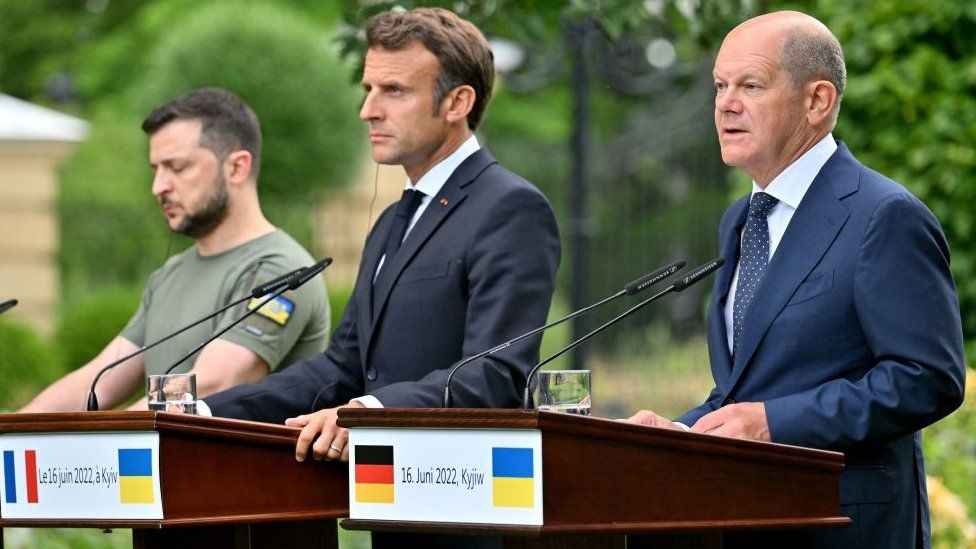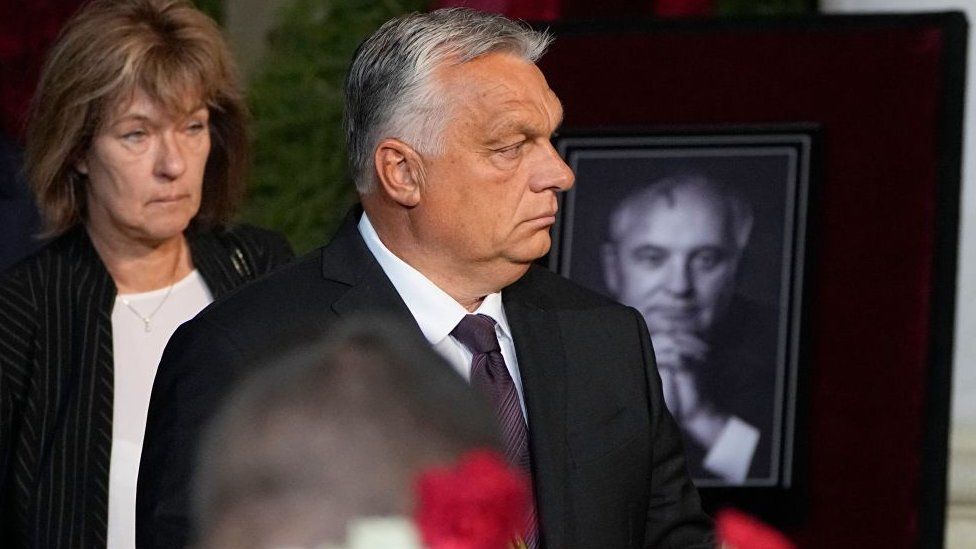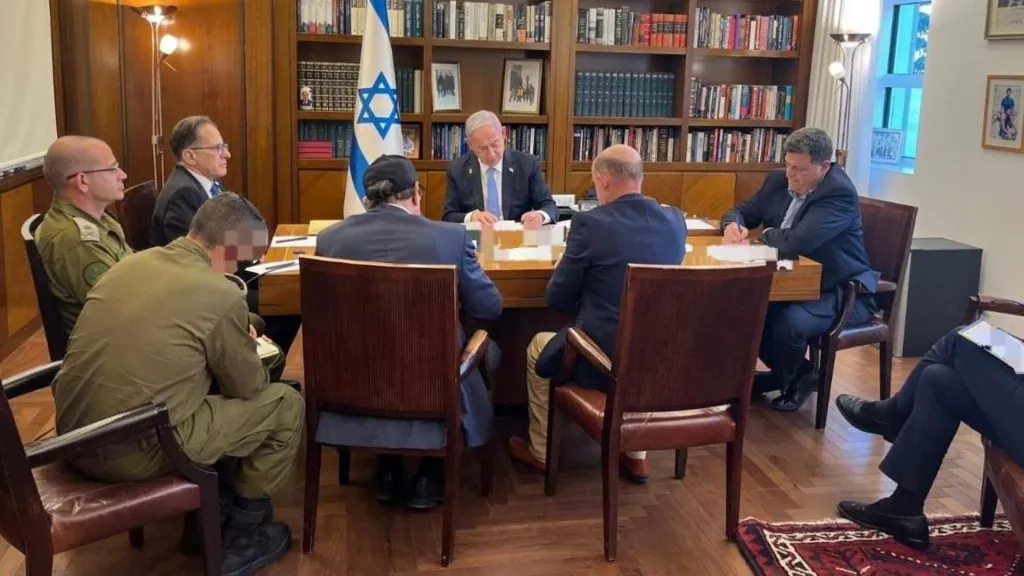Brussels is buzzing with talk of winter as Russian forces pursue their war in Ukraine. But the focus is more on Europe’s energy crisis, inflamed by the invasion, than the fighting itself.
European Union leaders are at pains to say their support for Ukraine is unwavering.
That is despite the bloc stumbling through recent efforts to agree new measures against Moscow.
The EU says its sanctions are “grinding” Russia’s economy but they are, as expected, hurting Europe too.
In public, at least, Ukrainian authorities say they are not concerned that Europe’s energy crisis will affect support for them.
But they are not ignoring it. Officials in Kyiv are aware the coming months will be challenging, and the message to the EU has been consistent, and probably co-ordinated: it will be hard for you, but imagine what it will be like for us.
The 27 member states are now considering proposals to put a price cap on Russian gas – a measure that Vladimir Putin has warned will trigger a halt in Russian energy supplies
Russia’s indefinite shutdown of the Nord Stream 1 pipeline, that runs from Russia to Germany, is widely seen across Europe as a retaliatory attempt by the Kremlin to push up gas prices and sow unrest.
President Volodymyr Zelensky has repeatedly denounced what he describes as Russia’s energy blackmail, urging European countries to remain united. Moscow, he said last weekend, was “trying to attack with poverty and political chaos where it cannot yet attack with missiles”.
Days earlier, First Lady Olena Zelenska said that while the UK was “counting pennies”, Ukraine was counting casualties. Simple and powerful words, designed to resonate.
President Putin’s invasion and the subsequent brutalities seemed to shock the EU into action; it moved fast.

But as the war has ground on, and its consequences have rippled across the continent, there are concerns that collective will is waning.
Ihor Zhovkva, deputy head of the president’s office, told the BBC that Ukraine’s government was confident there would be no change in policy from its European allies, and that no leader had linked their country’s support to public opinion. The hope is that people will blame their struggles on Russia’s actions, and not the help given to Ukraine or the response to the invasion.
For Ukraine, the West’s military aid and sanctions on Russia are vital. It needs more weapons and money to keep the country going, and wants even more sanctions.
There is no sign that the UK’s new prime minister, Liz Truss, is any less engaged in the war than her predecessor. Within hours of taking office she was on the phone to President Zelensky. And US President Joe Biden is to seek $11.7bn (£10bn) in emergency funding from Congress in further aid to Ukraine.
The picture across the European Union may be more complex.
The EU has already passed at least six packages of sanctions, but it’s a mystery about when the next official set of measures may appear.
Calls for a full, EU-wide, Russian visa ban failed to find the necessary support and the 27 states settled for more limited restrictions.
Before the summer break, they also haggled over a watered-down oil embargo.
Some member states, like Poland and the Baltics, remain “hard-line” believing that the EU shouldn’t wait for “triggers” before acting.

Others are more hesitant, arguing that it’s time to take stock and ensure existing measures are working well.
Hungary, already accused of taking a “soft” stance towards Russia, continues to cause agitation.
Budapest threatened to derail the renewal of certain sanctions unless three oligarchs were removed from the list.
Ihor Zhovka’s response to Europe’s energy crisis was blunt: “You have the moral choice.”
“You have worsening living conditions on one hand, and dependency on the aggressor” on the other, he said.
Mr Zhovka told the BBC that reducing European reliance on Russian energy might be difficult now, but it would pay off in the long term, as Russia’s aggression in Ukraine was not going to stop.
Meanwhile, Ukrainian Prime Minister Denys Shmyhal this week urged member states to back a total energy embargo and disconnect all Russian banks from the Swift financial messaging system.
Brussels also stands accused of being slow to deliver on billions pledged in financial assistance to Ukraine while Kyiv continues to plead for more modern weapons.
And there are concerns that Italy could become a less reliable partner if a right-wing alliance comes into power after elections later this month.
Last Saturday, up to 70,000 people protested in the Czech capital Prague voicing anger at energy prices as well as opposition to the EU and Nato.
The demonstration was organised by far-right and far-left groups. Czech Prime Minister Petr Fiala said “Russian fifth columnists” were behind it.
But politicians are acutely aware that distress about high energy bills could boil over.
Germany’s Foreign Minister Annalena Baerbock acknowledged that was possible, but she was adamant: “The sanctions will stay, also in winter time.” Her government has just produced a €65bn package of help to consumers and businesses.
A senior European diplomat told the BBC that while they had worried about wobbles from Berlin, they now believed attitudes towards Russia had truly changed.
And that for the EU as a whole, while the path forwards is being actively debated, there is no going back.
Mr Zhovka said winter would be tough for much of Europe as well as Ukraine: “In Ukraine, the price is the lives of Ukrainians.”







